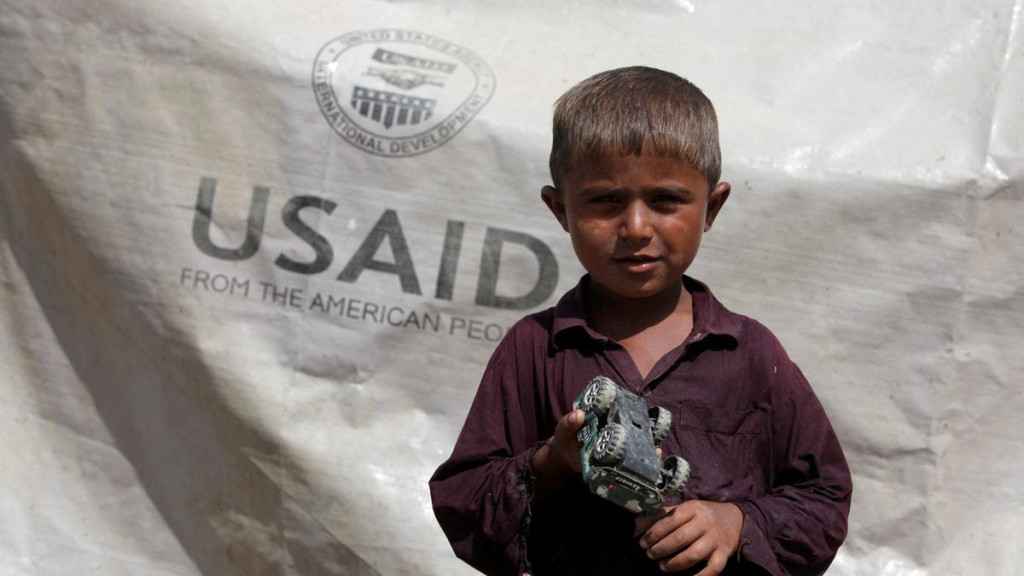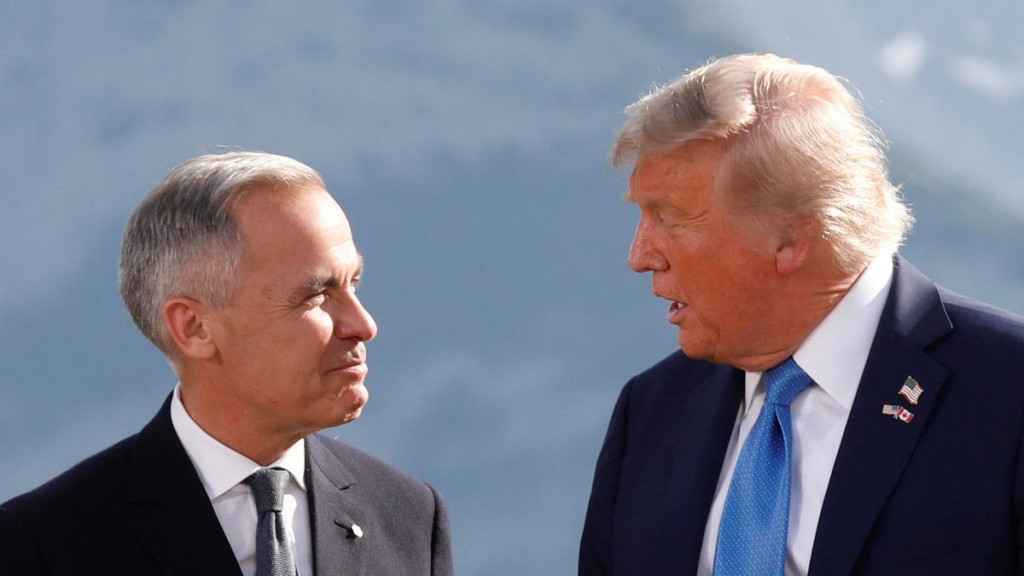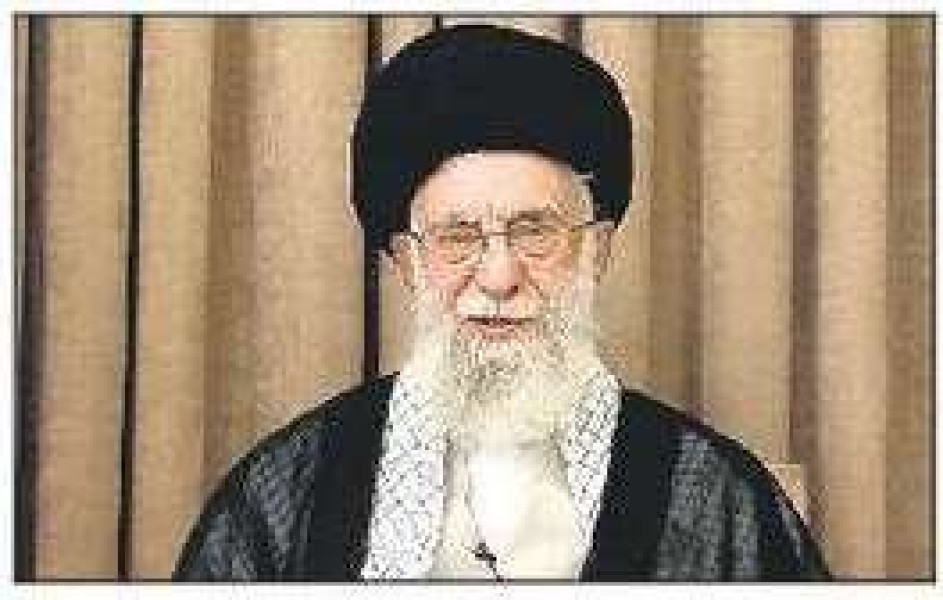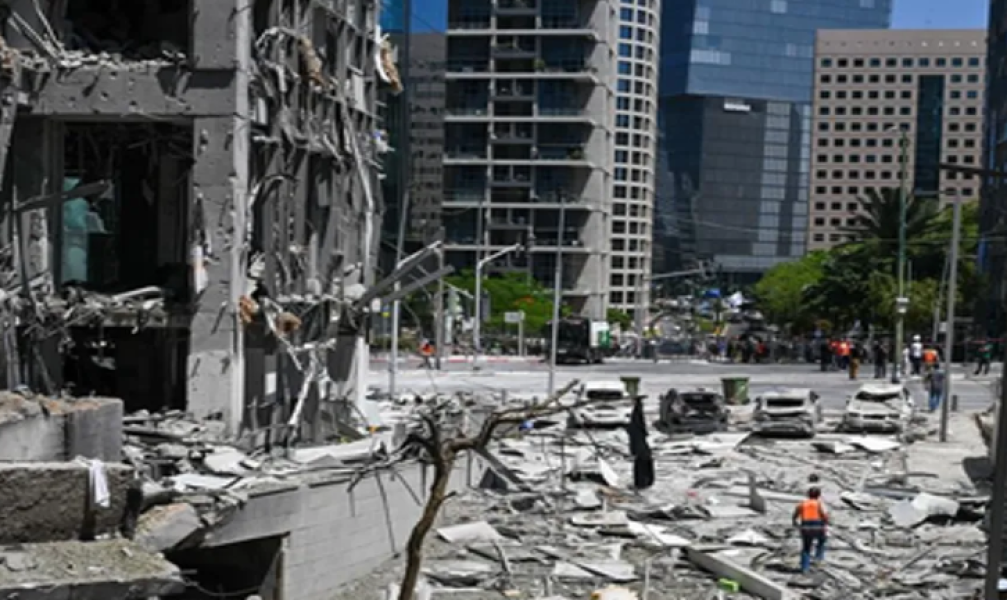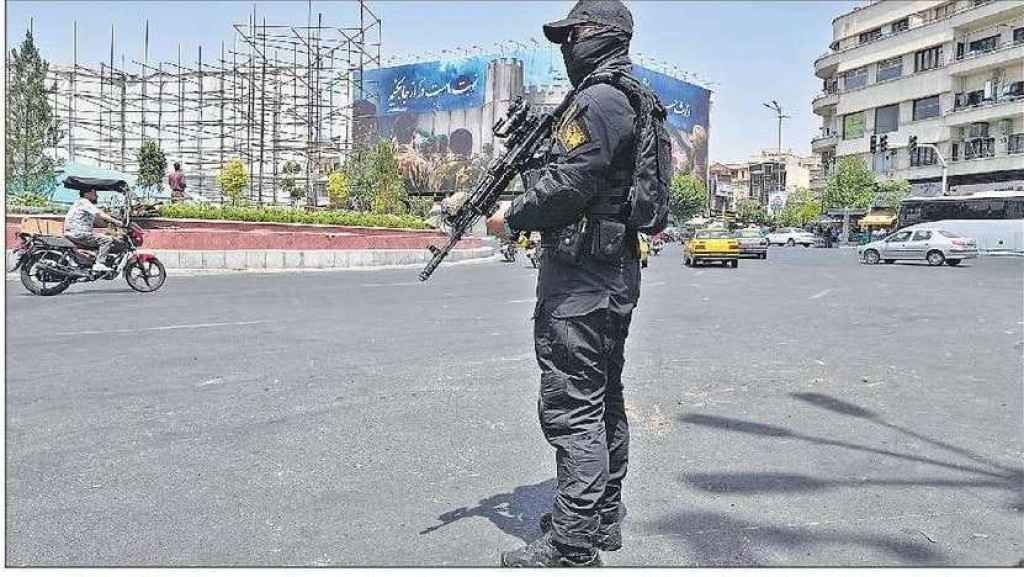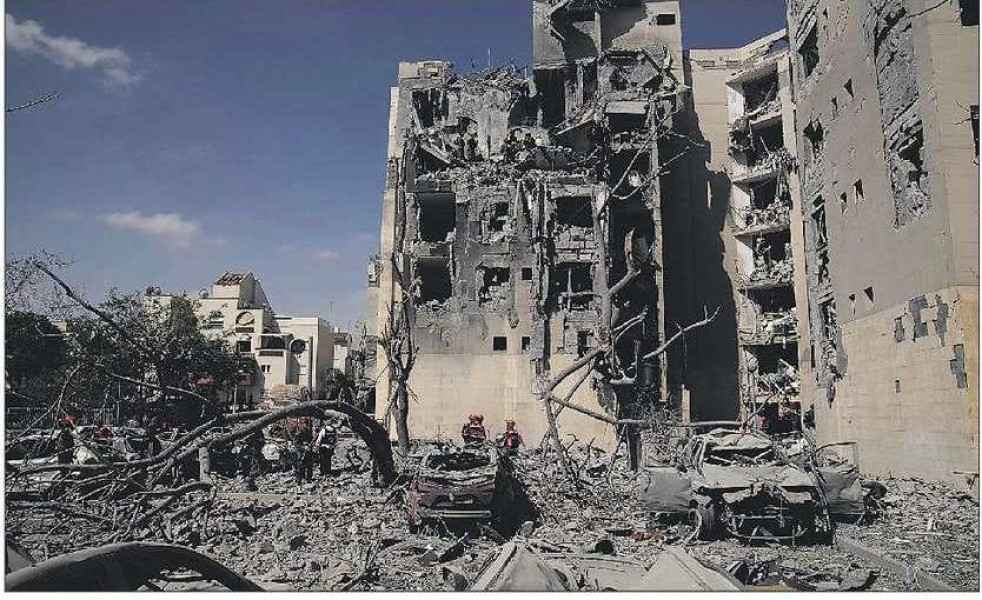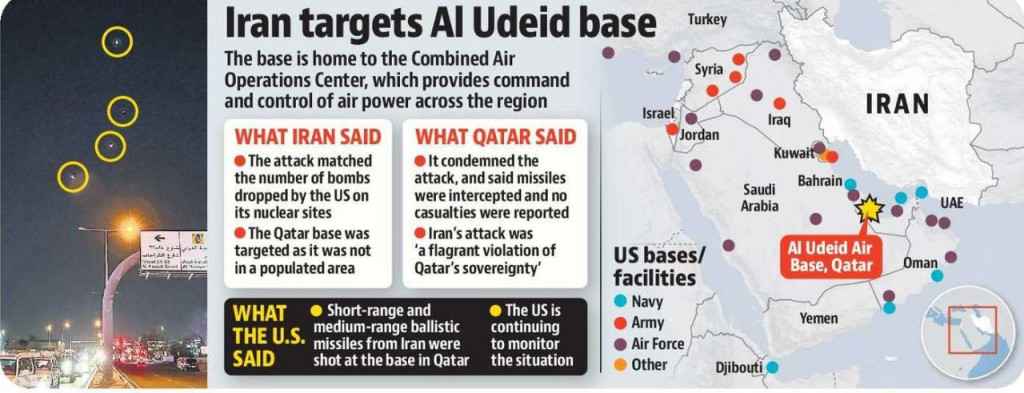
Now, Iran carries out retaliatory strikes on US air base in Qatar
Iran launched missile attacks on Monday on a US military base in Qatar, retaliating for the American bombing of its nuclear sites and escalating tensions in the volatile region. US officials reported no casualties.
Qatar condemned the attack on Al Udeid air base attack, but said it successfully intercepted the short- and medium-range ballistic missiles.
Iran said the attack matched the number of bombs dropped by the United States on Iranian nuclear sites over the weekend. Iran also said it targeted the base because it was outside of populated areas.
Those comments, made immediately after the attack, suggested Iran wanted to de-escalate with the US, something President Donald Trump himself said after the strikes early Sunday on Iran.
However, Israel’s war on Iran continues, with the Israeli military expanding its campaign on Monday to target sites symbolic for the country’s theocracy.
Qatar said it reserves the right to respond directly and in accordance with international law following the attack, saying it was a “flagrant violation of the sovereignty of the State of Qatar, its airspace, international law, and the United Nations Charter”.
“We affirm that the State of Qatar reserves the right to respond directly in a manner proportional to the nature and scale of this blatant aggression,” foreign ministry spokesman Majed Al-Ansari said in a statement, adding that the US base had been evacuated as a precaution ahead of the attack.
Iran said it coordinated its strikes on the US base, prompting air space closure, a person familiar with the matter told Reuters. The New York Times, which first reported the coordination, said Iran took the action to minimise casualties. According to Reuters, a Western diplomat said there had been a credible Iranian threat against the US-run base in the Gulf Arab state since midday.
Shortly after the missile attack, the Gulf nation of Bahrain that is home to the US 5th Fleet headquarters temporarily suspended flights in its airspace, which is similar to what Qatar did shortly before it was hit.
Iran announced the attack on state television as martial music played. A caption on screen called it “a mighty and successful response” to “America’s aggression.” Gas-rich Qatar, which lies 190km south of Iran across the Gulf, is home to the US’ largest military base in West Asia and hosts the regional headquarters of the Pentagon’s Central Command. There are about 9,000 US service members in the gas-rich state, which sits just across the Persian Gulf from Iran.
The Ain al-Assad base housing US troops in western Iraq was also targeted, an Iraqi security official who was not authorised to comment publicly told The Associated Press on condition of anonymity.
But Iran did not claim credit for that attack, which could have been carried out by militias. It was not immediately clear if there was damage to the Iraq base or any injuries. Qatar’s foreign ministry said the attack by Iran’s Revolutionary Guards was “a flagrant violation of Qatar’s sovereignty, its airspace, and international law.”
Al Udeid is also home to the Combined Air Operations Center, which provides command and control of air power across the region as well as the 379th Air Expeditionary Wing, the largest expeditionary wing in the world.
Just before the explosions, Iranian President Masoud Pezeshkian wrote on the social platform X: “We neither initiated the war nor seeking it. But we will not leave invasion to the great Iran without answer.”
The retaliation came a day after the US launched a surprise attack Sunday morning on three of Iran’s nuclear sites.
Earlier in the day, Israel expanded its war against Iran, striking the gate of a Tehran prison notorious for holding political activists and hitting the headquarters of the military force that suppressed recent protests.
As plumes of thick smoke rose over Tehran, Israel was attacked with yet another barrage of Iranian missiles and drones. The persistent fire has become a reality for civilians in both countries since Israel started the war to target Tehran’s rapidly advancing nuclear program.
On the 11th day of the conflict, Israel said it attacked “regime targets and government repression bodies in the heart of Tehran,” but Israeli officials insisted they did not seek the overthrow of Iran’s government, their archenemy since the country’s 1979 Islamic Revolution.
The Israeli military warned Iranians that it would continue to attack military sites around Tehran over “the coming days” as its focuses has shifted to symbolic targets as well. The military issued the warning on the social platform X, though Iranians are struggling to access the outside world as an internet shutdown has crippled the country.
The latest strikes unfolded only hours after Trump openly raised the possibility himself after just a day earlier inserting America into the war with its unprecedented stealth-bomber strike on three Iranian nuclear sites.
“If the current Iranian Regime is unable to MAKE IRAN GREAT AGAIN, why wouldn’t there be a Regime change???” he asked on his Truth Social website.
White House press secretary Karoline Leavitt later described Trump as “simply raising a question.” However, suggestions of overthrowing the Iranian government drew new anger from Tehran, which insists it will not negotiate at this time and is threatening to retaliate directly against either American troops or interests in a Mideast already inflamed by the still-raging Israel-Hamas war in the Gaza Strip.
In the Tehran strikes, Israel blew open a gate at Evin prison. Iranian state television shared black-and-white surveillance footage of the strike at the facility known for holding dual nationals and Westerners often used by Iran as bargaining chips in negotiations with the West.
Evin also has specialized units for political prisoners run by the paramilitary, all-volunteer Revolutionary Guard, which answers only to Supreme Leader Ayatollah Ali Khamenei. The facility is the target of both US and European Union sanctions.
There were no immediate reports of casualties in Iran or significant damage, though the semiofficial Tasnim news agency said there had been a power cut reported outside of Tehran following the Israeli strikes.
Iranian state television also aired footage it described as being shot inside Evin, with prisoners under control inside the facility. However, the Washington-based Abdorrahman Boroumand Center for Human Rights in Iran expressed worry about the condition of prisoners there.
“Many families of current detainees have expressed deep concern about the safety and condition of their loved ones held inside the prison,” it said.
Earlier Monday, Iranian Gen. Abdolrahim Mousavi, the chief of joint staff of armed forces, warned Washington that its strikes had given Iranian forces a “free hand “ to “act against US interests and its army.”
Tens of thousands of American troops are based in the West Asia, many in locations within range of short-range Iranian missiles.
The Israeli military also confirmed it struck roads around Iran’s Fordo enrichment facility to obstruct access to the site. The underground site was one of those hit in Sunday’s attack by the United States on three nuclear facilities. The Israeli military did not elaborate.
“The Iranian dictator will be punished with full force for attacking the Israeli home front,” Israel’s defence ministry said.
According to an Israeli official familiar with the government’s strategy, Israel is targeting these sites to put pressure on the Iranian administration but is not actively seeking to topple it. The official spoke on condition of anonymity to discuss internal government deliberations.
REFERENCE: HINDUSTAN TIMES



